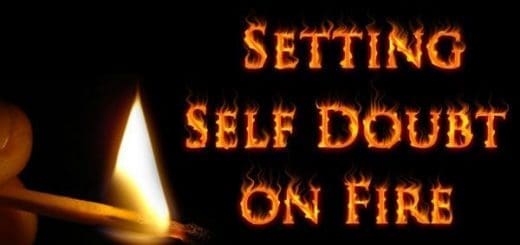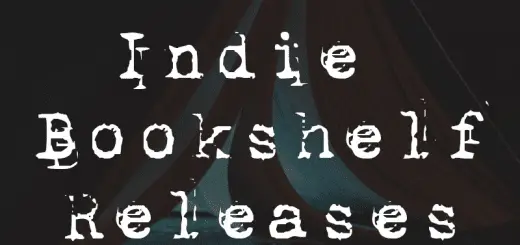How William Lindsay Gresham’s Life Delivered Us Nightmare Alley
 Noir has not always been confined to rain-swept streets or roadside diners or gangsters on the lam. The carnival, with its seedy operators who prey on a public desperately wanting to believe the big top clairvoyants can communicate with the dead, has also featured in noir novels. The most famous of these was Ray Bradbury’s Something Wicked This Way Comes (1962). But in actuality, Bradbury’s novel is more horror than noir and violates one of the cardinal rules of noir, in that the novel has a happy ending. Good triumphs over evil.
Noir has not always been confined to rain-swept streets or roadside diners or gangsters on the lam. The carnival, with its seedy operators who prey on a public desperately wanting to believe the big top clairvoyants can communicate with the dead, has also featured in noir novels. The most famous of these was Ray Bradbury’s Something Wicked This Way Comes (1962). But in actuality, Bradbury’s novel is more horror than noir and violates one of the cardinal rules of noir, in that the novel has a happy ending. Good triumphs over evil.
The best example of noir under the big top is, in fact, William Lindsay Gresham’s Nightmare Alley (1946). The novel is uber-noir in that, for sheer bleakness and greed, very few noir novels can touch it. Good doesn’t triumph over evil, and the lasting impression from the book is that the desperate will continue to be fleeced by the amoral grifters.
Gresham had as desolate and tragic a background as his protagonist, Stanton Carlisle, a cynical and downright sinister drifter who joins the carnival and then quickly masters the tricks of the seance peddlers.
The novel was twice adapted for the screen. The first adaption, made a year after the novel came out in 1947, starred Tyrone Power, a matinee idol who lobbied hard to star as Carlisle because it was worlds away from his adventure hero image.
Although the film premiered during the noir craze, in which morally compromised and sometimes doomed figures went up against a hopelessly corrupt society, the filmmakers would only let Power go so far as the villain. He was more an innocent in the woods than a Machiavellian figure. As a result, the film never approached the bleakness of Gresham’s novel.
The second adaption made in 2021 by horror master Guillermo del Toro perfectly captured the novel’s nastiness with Bradley Cooper, a much better and riskier actor than Power, playing an arrogant villain who eventually believes his own hype.
Like the novels of Dashiell Hammett, Gresham’s book offers the reader no way out of this corrupt world where everyone is on the take or being “taken.” This is ironic because, like Hammett, Gresham was a one-time member of the American Communist Party, which offered Marxist solutions to such a world.
Gresham was born in Baltimore in 1909, but as a child, was moved to New York. Early on, he was attracted by the carnivals at Coney Island. He soon wanted to be a writer and, for a time, edited true crime magazines.
But it wasn’t until his service with the Stalinist-backed Loyalists in the Spanish Civil War (1936–1939) that he gathered the material for a novel. As a Communist in Spain, he was educated about the secret methods of carnival tricksters by a former circus operator named Joseph Daniel Halliday.
For a time, Marxism shoved aside Gresham’s boyhood ambitions to be a Unitarian minister. Now he saw religion and capitalist society as a racket:
“America was a great slot machine: drop in your talents, and out would come the good things of life—cars, beautiful women, suburban homes.”
As capitalism seemed to crumble around him, and he couldn’t find any adequate means, he was so desperate he once worked as a folk singer in Greenwich Village; Gresham, like a lot of writers in the 1930s, joined the Communist Party.
Gresham, usually quite cynical, fell for the Party line hard. Looking back on those times from the vantage point of the 1950s, he captured his mood and the mood of the Party:
“Our little group of middle-class dreamers and a few half-educated workers were the chosen of history. All the rest of the world was a vast conspiracy against us.”
Ironically, in Spain, it wasn’t a political commissar or a working-class soldier or a close reading of Marx and Lenin that solidified Gresham’s “faith” in the “revolution.” It would be a religious figure, Father Micheal O’Flanagan, who tried to mix Christianity with Marxism, earning the title the “Red priest” of Dublin. Now Gresham’s Unitarian ambitions could seemingly merge with his newfound faith in Marxism.
Of his attraction to O’Flanagan over the atheistic Marxists, Gresham wrote:
“O’Flanagan….said {the communists} were doing our Father’s moral work. The atheist philosophy, ‘dialectical materialism,’ implies that self-interest is the only basis for ethics—and that it can best be served by self-destruction; dying for the working class. I think Father O’Flanagan had more logic on his side.”
But it was O’Flanagan’s religious emotionalism that really sent Gresham to Spain:
“Father O’Flanagan had said, ‘I cannot rest while Spain is bleeding.’ Those words, spoken by a Christian, took me over the Pyrenees.”
Bitter over how America had ensured the defeat of The Spanish Loyalists in 1939 by refusing them military and economic aid, Gresham returned to the United States, attempted suicide, and then sought to keep at bay such impulses by alcohol and writing. Before the novel’s debut in 1946, he was an unpublished author and an alcoholic mess. He was also growing lukewarm to Marxism and began searching for a Christianity untethered to socialism that emphasized individual responsibility.
His first rebellion against the Party was in going to see a psychiatrist. As such, he began to see his reasons for being a Communist as a neurotic need to belong to a group with ready-made answers.
By the time he wrote Nightmare Alley in 1946, he had not yet completely converted to Christianity. In the novel. Stanton Carlise hated his father because he was a preacher, which the son saw as another form of hucksterism, and himself adopted this profession to fleece the credulous for 17 lush years.
While researching the novel, Gresham fell under the sway of a Russian mystic named P.D. Ouspensky. Ouspensky saw the meaning of life as discernible through Tarot cards, which appear frequently in Nightmare Alley (each chapter begins with the image of a Tarot card) and especially in the del Toro adaptation.
Gresham declared that “the ancient religious mystics, who embodied their revelations in symbolic designs” of their Tarot cards were “shrewd:”
“The twenty-two picture cards” {contained }“spiritual truths” {which} “unlocked the subconscious and released a new kind of mental energy. I have always found it easier to think in images and analogies than abstractions, and here I had a pictorial vehicle for thought.”
One card, in particular, destroyed his “Marxist certainties” and moved him toward Christianity. The card was “The Hanged Man,” where a figure is hung upside down by one foot from a cross. To Gresham, the expression on the figure’s face was one of “unearthly peace,” and Gresham sought it by becoming a Christian convert.
Taking into account the “sacredness” of the Tarot cards, his abandonment of Communism, and his burgeoning Christianity, a reading of Nightmare Alley reveals that it is more than an exercise in nihilism; not just one more addition to the noir trend of the 1940s. The book and the del Toro adaptation is really an Old Testament parable about the rise and fall of a sinful man (without spoiling the jolting ending of the novel, “the wages of sin” results in a “living death” for Carlise).
Carlise is repeatedly warned by the carnival magicians that there is a comeuppance for those who abuse the Tarot cards and mind control “tricks;” it is their view of these device’s power that constitutes the only belief system in the novel and the del Toro film. But he doesn’t heed their warnings and keeps lining his pockets until retribution occurs.
Gresham had his own tragic end. Nearly blind, still alcoholic, and afflicted with tongue cancer, he committed suicide at the age of 53. None of his attempts at keeping his demons at bay—through alcohol. Communism, psychoanalysis, and writing.–forestalled the inevitable. Toward the end of his life, he revealed that politics and writing weren’t things to live for but to live through. He saw his legacy as “not literary” but a demonstration of how to survive.
While writing his masterpiece, Gresham still considered himself a Marxist. But the strongest message of the novel is moral, not political. Nightmare Alley is unique in that it is a spiritual book written by a neurotic, alcoholic Marxist at war with himself.
- About the Author
- Latest Posts












